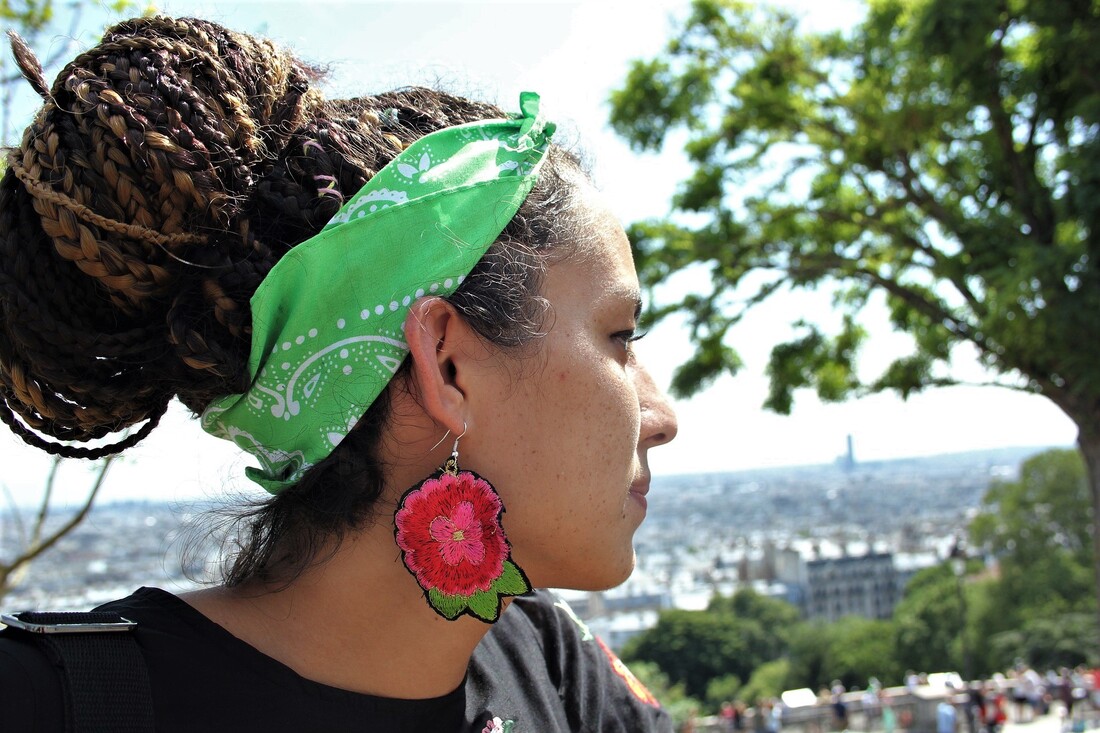|
'There is a universal human tendency to conceive of all things as like ourselves.' (David Hume) In the ground-breaking, futuristic film ‘Her’ (2014), actor Joaquin Phoenix played the part of a man who falls in love with an artificially intelligent (AI) virtual assistant. The AI, whose voice was played by actress Scarlett Johansson, was capable of deep learning. It, or we could say ‘she’, spoke, responded and interacted with the protagonist in ways that we could imagine of a real woman in an increasingly loving relationship – and all via a voice. The movie played with the social-psychological possibilities and limits of the potential inter-relationship between humans and technology. In the next year another movie, ‘Ex Machina’ (2015), saw Domhnall Gleeson playing the role of a computer programmer who encounters an AI robot, this time in the physical form of a beautiful woman played by Alicia Vikander. Gleeson is invited by a tech entrepreneur to test (a) whether she’s capable of genuine consciousness and (b) whether he can relate to her as ‘human’, even though he knows she is artificial. As the plot plays out, the AI skilfully seduces and manipulates the programmer, with apocalyptic implications as the AI plays out the relational game and wins. One of the striking features of both dramas is the human ability to project our human qualities onto other people or things, in this case the AIs, in ways similar to those in which we may, say, attribute human qualities to a dog – and then relate to it as if it were in some way human. It’s a subconscious phenomenon, a blurring of the boundaries between reality and fantasy. We can know something to be true at a rational-cognitive level and, yet, still feel and behave as if a different reality were true. It’s like believing what we want to believe, when it fulfils a human need to do so.
22 Comments
‘No matter what happens, we always have a choice.’ (Napz Cherub Pellazo) ‘What are your options?’ is a good question in coaching, except when it isn’t. Many people come for coaching in the first place because they face an issue or a dilemma, and they can’t see a way forward. Sabine Dembkowski and Fiona Eldridge observed this phenomenon in their article, ‘Beyond GROW’ (2023): ‘Clients often experience a stuck state…where they feel trapped as if there are no alternatives or keep circling around the same issue without being able to generate new options.’ Against this backdrop, ‘What are your options?’ can be met with a bemused, ‘I don’t know. That’s why I’m here.’ An inexperienced coach may feel stuck too at this point and perhaps, hoping to find a way through, ask something along the lines of ‘What have you already tried?’ Again, this may elicit little more than feedback on what the client has already done and found to be ineffective (which the client knows already anyway), and bring both parties back to square one. An alternative, and potentially more useful, framing could be something like, ‘Given what you have tried already, what is the crux of the issue for you now?’ This may stimulate fresh insight and, in turn, raise new possibilities into awareness. A different approach can be to pose questions that aim to stretch the boundaries of the client’s current constructs and imagination, for example: ‘What would you do if you had a blank cheque?’ ‘What would you do if you felt no fear?’ ‘What could you do if you were not answerable to anyone?’ Claire Pedrick might invite a stuck client to generate a spectrum of options, from ‘Do nothing’ to whatever they would regard as a ‘Nuclear option’. Ian Gray deploys a fun and radical brainstorming technique, where every third option or idea must be ‘illegal, immoral or absolutely unworkable’. If a client still feels completely stuck, I may invite them to take a large, blank sheet of paper, draw themselves at the centre, then co-create radical options in the form of a mind map. In order to help minimise the risks of instinctive psychological and emotional resistance or push back from the client, I emphasise that the options simply represent possibilities, not what the client may want or consider right to do. Against each option, I then invite the client to respond to two questions: ‘If you were to do this, what would it make possible (or right)?’ and, ‘If you were to be do this, what would you need?' [See also: Out of the building; Worst possible idea] ‘Respect deeply the otherness of the other.’ (Richard Young) Navigating boundaries is a critical skill in coaching and action learning. Anne Katharine describes this phenomenon succinctly in the subtitle of her book: Where You End and I Begin (2000). Incorporate Psychology provides a useful explanation of different kinds of relational boundaries and what can go wrong if they become blurred, enmeshed or rigid. Khalil Gibran writes poetically on this same theme in The Prophet (1923): ‘Let there be spaces in your togetherness. Let the winds of the heavens dance between you…Even as the strings of the lute are alone though they quiver with the same music.’ In coaching and action learning, a variety of boundaries emerge that we need to pay attention to for this work to be effective. In a coaching relationship, the coach and client learn to navigate these including: their respective roles and responsibilities; their places and times of meetings; their accountabilities to any wider stakeholders; the scope and parameters of what each will focus on, and not; their agreements on what will remain confidential, or not, and to whom. In action learning, further boundaries include those between facilitator and group, and those between different group participants and roles. At deeper human levels, Gestalt psychology speaks of confluence, where a boundary is dissolved and the quality of healthy contact is compromised. The coach and client, or action learning presenter and peers, need to differentiate between, for instance: what’s simply here-and-now and what’s transference from the past; what’s the coach/peers’ stuff and what’s that of the client or presenter; what’s just about the client or presenter and what’s a parallel process of wider systemic or cultural influences. Managing boundaries is, we discover, a key dimension to success in these fields. ‘Your choice point is the space you're in right before you make a decision.’ (Martha Tesema) You are choosing to read this blog – you could have chosen to do something else instead. You are choosing to read it now – you could have chosen to read it at a different time. In fact, according to psychological choice theory, everything you do is a choice. You’re not always aware of it and it won’t always feel like it. The implications and consequences of choosing one course of action over another can sometimes be so different and so stark that it can feel to, to all intents and purposes, as if there is no choice. Yet you are still likely to choose the action that, for instance, aligns most closely with your values; or has the greatest perceived benefits; or has the least risks or detrimental effects. The implications of this theory are radical and extreme. If every action you take represents a choice, and if you can grow in awareness of the choices you are making at each moment, a vast array of possibilities opens up to you. As you approach any decision, it will be like reaching a road junction, with always at least 2 options available to you. You will no longer be trapped or driven entirely by circumstances. You can exercise greater freedom and personal agency. You can learn to navigate adaptively through choices, like tacking into the wind on a sailboat. You can become more creative and innovative. You can visit places, reach destinations, that you never dreamed imaginable. There is a flip side. If you really are free to choose, you’re also responsible for your every action. It could feel easier to tell yourself that you have no choice – especially since you can’t anticipate every potential ripple effect. It would relieve you of the burden of accountability. You could also feel quite overwhelmed by the dread of having to make choices at every moment in time, in every situation. It could feel like existentialist Jean-Paul Sartre’s nightmare, ‘condemned to be free’. You may try to alleviate the anxiety by telling yourself that you’re a product of your background, upbringing, culture or circumstances. Then you could stop over-thinking, over-analysing, and get on with your life. So, how to handle this paradox? How to create the liberating freedom of expanding one’s sense and reality of choice whilst also to acknowledge the ethical and practical responsibilities it carries with it? First: awareness. Here’s a simple exercise. Write down a paragraph of no more than 100 words that describes the last meeting you had with a colleague. Now, underline every word that represents a choice point in what happened. If you do this rigorously enough, you will be amazed at how much of the text is highlighted. Now the stretch, a thought experiment: jot down at least 2 different choices you could have made at each choice point. Try to be creative and courageous as you do this. Second: responsibility. To build on this exercise, jot down a list of key criteria that will help you to ensure focus, priorities and boundaries to your decisions and actions. Here are some examples: ‘make best use of my time; achieve my career goals; develop the team’s potential; improve quality of relationships; create best value for stakeholders’. These criteria reflect and represent your values. Finally, test the actual choices you made, and the hypothetical choices you could have made, against these criteria to take note of what you could have done differently, what you could do next time and what lines you will not cross. Now – it’s your choice: given what you know now, what will you do with it? (See also: Choose; Choice; Agents of Change) How would you describe your coaching style? What questions would you bring to a client situation?
In my experience, it depends on a whole range of factors including the client, the relationship, the situation and what beliefs and expertise I, as coach, may hold. It also depends on what frame of reference or approach I and the client believe could be most beneficial. Some coaches are committed to a specific theory, philosophy or approach. Others are more fluid or eclectic. Take, for instance, a leader in a Christian organisation struggling with issues in her team. The coach could help the leader explore and address the situation drawing on any number of perspectives or methods. Although not mutually exclusive, each has its own focus and emphasis. The content and boundaries will reflect what the client and coach believe may be significant: Appreciative/solutions-focused: e.g. ‘What would an ideal team look and feel like for you?’, ‘When has this team been at its best?’, ‘What made the greatest positive difference at the time?’, ‘What opportunity does this situation represent?’, ‘On a scale of 1-10, how well is this team meeting your and other team members’ expectations?’, ‘What would it take to move it up a notch?’ Psychodynamic/cognitive-behavioural: e.g. ‘What picture comes to mind when you imagine the team?’, ‘What might a detached observer notice about the team?’, ‘How does this struggle feel for you?’, ‘When have you felt like that in the past?’, ‘What do you do when you feel that way?’, ‘What could your own behaviour be evoking in the team?’, ‘What could you do differently?’ Gestalt/systemic: e.g. ‘What is holding your attention in this situation?’ ‘What are you not noticing?’, ‘What are you inferring from people’s behaviour in the team?’, ‘What underlying needs are team members trying to fulfil by behaving this way?’, ‘What is this team situation telling you about wider issues in the organization?’, ‘What resources could you draw on to support you?’ Spiritual/existential: e.g. ‘How is this situation affecting your sense of calling as a leader?’, ‘What has God taught you in the past that could help you deal with this situation?’, ‘What resonances do you see between your leadership struggle and that experienced by people in the Bible?’, ‘What ways of dealing with this would feel most congruent with your beliefs and values?’ An important principle I’ve learned is to explore options and to contract with the client. ‘These are some of the ways in which we could approach this issue. What might work best for you?’ This enables the client to retain appropriate choice and control whilst, at the same time, introduces possibilities, opportunities and potential new experiences that could prove transformational. What is real, what is true, how can we know? These are questions that have vexed philosophers for centuries. In more recent times, we have seen an increasing convergence between philosophy and psychology in fields such as social constructionism and existential therapy. How we experience and make sense of being, meaning and purpose is inextricably linked to how we behave, what we choose and what stance we take in the world. As a Christian and psychological coach, I’m intrigued by how these fundamental issues, perspectives and actions intertwine with my beliefs, spirituality and practice. Descartes once wrote, ‘If you would be a real seeker after truth, you must at least once in your life doubt, as far as possible, all things.’ It’s as if we must be prepared to suspend all assumptions about ‘what is’, to explore all possibilities and dare to think the unthinkable in order to grow and make our best contribution. Things are not always as they at first appear. There are sometimes multiple explanations for the same phenomenon, depending on the frame of reference we or others use to interpret it (see, for instance, Gareth Morgan’s seminal work, Images of Organisation, 1986). We are sometimes blinded to what’s in front of us by our prejudices, preconceptions, cultural constraints or rigid views of the world. It can be hard to maintain healthy scepticism without cynicism. I see it with clients, sometimes in myself too. A sense of being trapped by a fixed Gestalt, a cognitive distortion, an inherited or learned belief system. An inability to see, to recognise the box that we’re in, never mind to see or think outside of it. An avoidance of deep, difficult questions because of the discomfort, confusion or anxiety they may evoke. If we’re not careful, if we can’t find the right help when we need it, it may limit our lives and our learning. I think this is where coaching can play a very important role, helping pose and address some deep questions. Nick Bolton commented insightfully in Coaching Today that, ‘To explore a coaching issue existentially is to understand the relationship that the presenting problem has to the human condition to which it is a response, and to remain focused on enabling a change of perspective that allows the client to move past their current challenge.’ He also provided some helpful examples: ‘For instance, how is a client’s procrastination around something that seems to matter to her a failure to remember that life comes to an end? How is a client’s need to be unconditionally loved by his partner an attempt to deal with existential rather than interpersonal isolation? (And the solutions are very different things). How is someone’s lethargy simply a part of their fear of taking responsibility for their life?’ (July 2013, p17) A metaphysical, existential or theological dimension can shift the entire paradigm of the coaching conversation. The question of whether a client should apply for this or that job is influenced by her sense of purpose. If she is willing to consider that God may exist and have a plan for her life, the whole situational context will change. It can be a dizzying and exciting experience, yet it’s really a question of how courageous and radical we and the client are prepared to be. It was really muddy this weekend and the woodland tracks were almost impassable. Almost. It’s precisely the almost-ness that makes this sport so challenging and exhilarating. I’m not that skilled on a mountain bike. I can do enough to complete rough tracks on hilly ground without falling off too often. Last year I went over the handlebars, not on purpose, when I hit a tree root hidden by bracken. It left me breathless, yet the element of risk adds to the thrill and adventure.
Each time I go out, I get that bit better. My legs get stronger and I improve my balance. I skip over a log where before I would have stepped off the bike to lift it over. I wince less when I get caught by brambles, digging their thorns through my trousers and shirt. I get a better sense of which puddles to ride through and which to avoid. I push on ahead whereas in earlier days I might have given up. I’m improving my stamina, my fitness and my biking technique – and it feels great. Spurred on by a friend who has also joined this cycling sport, I signed up this week for a sponsored ride for a UK charity (http://www.justgiving.com/Nick-Wright40). It’s a stretching target for me, the longest distance I will have ridden since I was 15. It feels like testing myself, seeing what I’m capable of, paving the way perhaps to even greater challenges in the future. I think that’s where the fun is, that ‘not sure if I can make it’ feeling combined with a gritted determination to succeed. I’m reminded of leadership, of parenting and of coaching. How can we keep ourselves and others at the cutting edge, the edge where we and they feel stretched and challenged yet most alive? How can we motivate ourselves and others to keep growing, to keep pushing boundaries of experience without feeling over-stretched or snapping? How can we develop our own and others’ resilience to persevere and to reach new heights that we or they would never have dreamed possible? |
Nick WrightI'm a psychological coach, trainer and OD consultant. Curious to discover how can I help you? Get in touch! Like what you read? Simply enter your email address below to receive regular blog updates!
|








 RSS Feed
RSS Feed